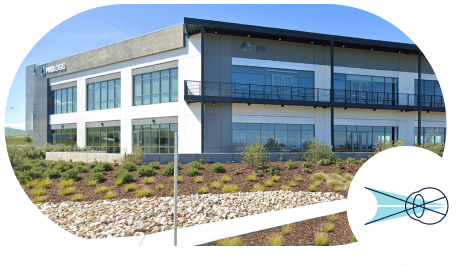About Macular Degeneration
What is macular degeneration and how common is it?
Age-related macular degeneration (AMD) is a condition in which the central portion of your retina tissue, the macula, deteriorates, causing your central vision to be blurry and distorted.
There are two major types of macular degeneration called “dry macular degeneration” and “wet macular degeneration.” Both forms can cause vision loss, but the wet type is more rapid and aggressive.
To help distinguish dry from wet macular degeneration and to develop a treatment plan, your doctor may obtain a test called a fluorescein angiogram in addition to your eye examination. A small amount of dye is injected into an arm vein and special photographs are taken of your retina’s blood vessels as the dye courses through them. This test can provide very important information about the severity of your problem and the best treatment approach for your eye.
Learn more about macular degeneration at ASRS
Información en español en el sitio web de ASRS
Dry Macular Degeneration
In dry macular degeneration, tiny mounds of yellowish material accumulate in the retina and can damage the sensitive nerve cells. These mounds are called drusen. In many cases, the drusen only cause minor damage and result in mild vision loss. If there are many drusen, antioxidant vitamins and minerals may reduce the chance of more damage. These vitamins can be bought in drug stores and supermarkets and are sold as Ocuvite or I-CAPS among other brands. If there are only a few drusen, these vitamins are of little use. Similarly, if you do not have have macular degeneration, the vitamins offer no proven benefit.
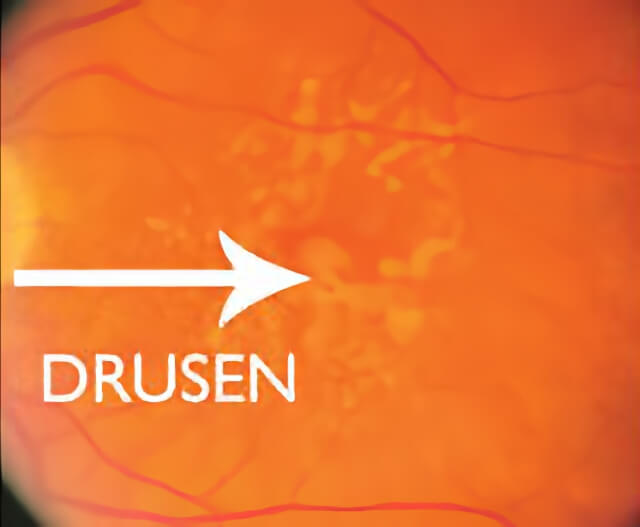
Note the multiple yellow deposits (drusen) in the central macula in this picture of dry AMD.
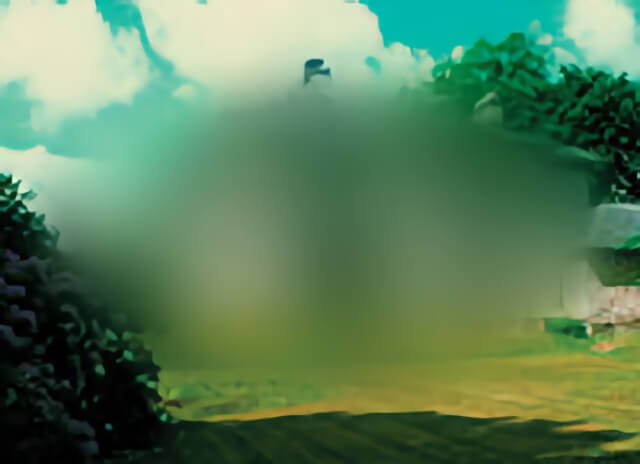
When macular degeneration affects the vision, this is the typical view of the world that the patient experiences.
Wet Macular Degeneration
In wet macular degeneration, abnormal blood vessels grow and leak under the retina. These blood vessels usually cause more severe damage to the nerve cells and can sometimes bleed. There are different types of blood vessels. Over the past few years major advances have occurred for the treatment of wet macular degeneration. New drugs such as Avastin, Lucentis, and Macugen can stop the growth of these vessels. Photodyamic Therapy with Visudyne may help to make these drugs more durable in selected cases. For many patients, we are able to stabilize their vision, especially when diagnosed early on when visual acuity is still relatively good1 (Ho et al. 2017).
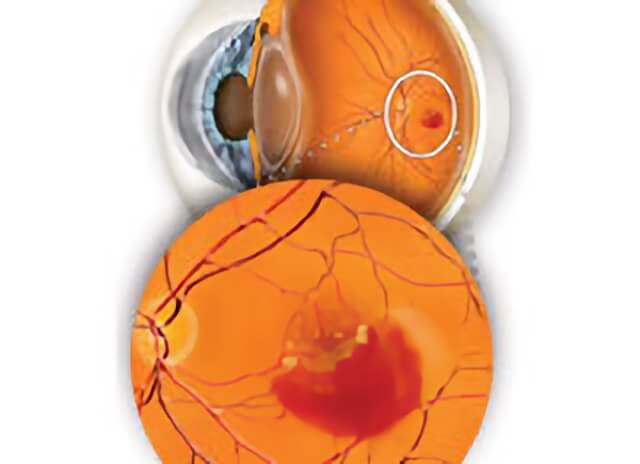
Wet macular degeneration occurs when bleeding and leaking from abnormal blood vessels occurs in the center of the retina.
Occasionally we can even improve vision, a goal that was beyond imagination only a few years ago. For very advanced macular degeneration where the abnormal blood vessels have formed a scar, no medical or surgical treatment currently available will be helpful. However, an evaluation by a low vision specialist might help to allow you to maximize your function with whatever vision you still retain despite the damage to your retina.
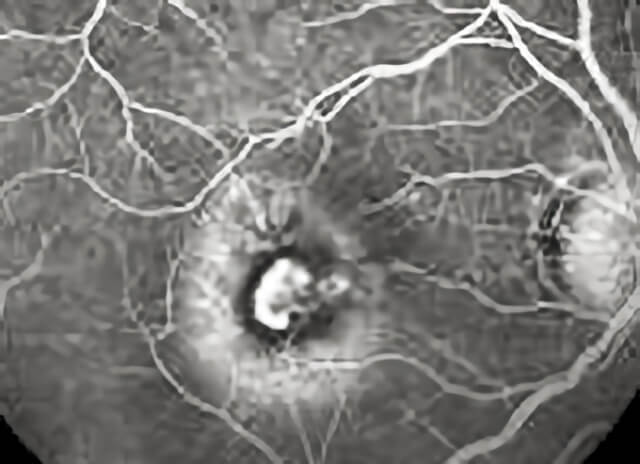
Fluorescein dye is injected into an arm vein to produce this angiogram of wet AMD. Note the white dye leaking in the center of the image.
References
- Ho AC, Albini TA, Brown DM, Boyer DS, Regillo CD, Heier JS. The Potential Importance of Detection of Neovascular Age-Related Macular Degeneration When Visual Acuity Is Relatively Good. JAMA Ophthalmol. 2017 Mar 1;135(3):268-273. pubmed.ncbi.nlm.nih.gov/28114653
Schedule Macular Degeneration Treatment in Northern California with Retinal Consultants Medical Group
Since 1975, Retinal Consultants Medical Group has been providing outstanding care to patients throughout Northern California, including Sacramento, Modesto, and Stockton. Our retina specialists and surgeons treat multiple vitreoretinal conditions, such as age-related macular degeneration and diabetic retinopathy. We invite you to contact us with any questions or schedule an appointment today.


